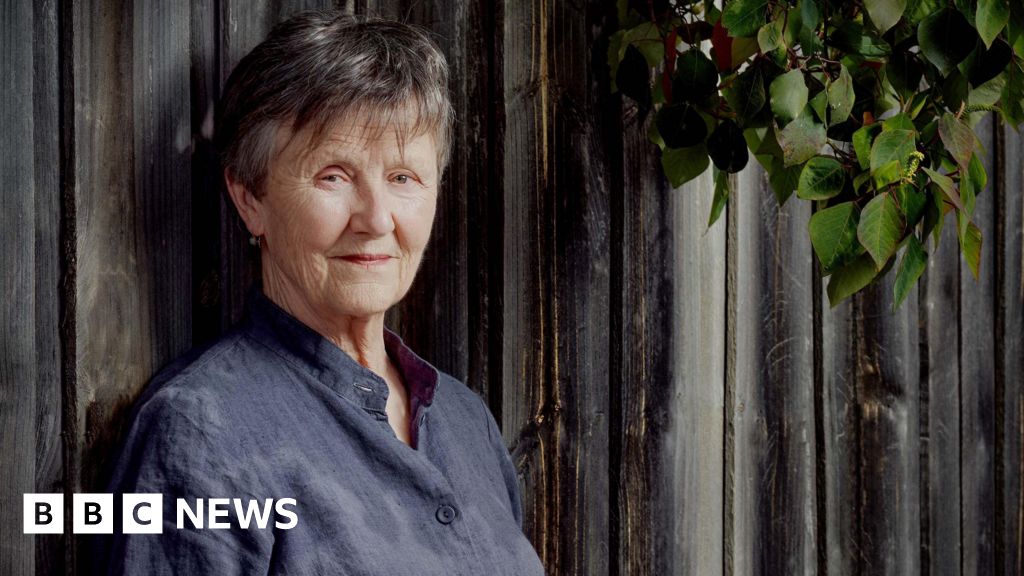'Addictive' diaries win prestigious non-fiction prize

Helen Garner's Diaries Win Prestigious Baillie Gifford Prize for Non-Fiction
Australian writer Helen Garner has been awarded the prestigious Baillie Gifford Prize for Non-Fiction for her collection of diaries, "How to End a Story: Collected Diaries." This marks the first time a collection of diaries has won the esteemed literary award, which recognizes excellence in non-fiction writing.
A Life Unveiled: Garner's Intimate and Intellectual Journey
"How to End a Story" chronicles Garner's life from her early days in bohemian Melbourne, through raising her daughter in the 1970s, and navigating the complexities of a dissolving marriage in the 1990s. The diaries offer a raw and honest portrayal of personal struggles, intellectual pursuits, and everyday observations, providing a unique window into the life of a celebrated writer.
The judges unanimously selected Garner's work as the winner, praising its captivating nature and insightful reflections. Robbie Millen, chair of the judges, described the book as "a remarkable, addictive book," highlighting Garner's ability to elevate the diary form by seamlessly blending intimate moments, intellectual musings, and mundane details. He added, "She is a brilliant observer and listener - every page has a surprising, sharp or amusing thought. Her collected diaries will surely be mentioned alongside The Diary of Virginia Woolf."
Critical Acclaim and Recognition
The comparison to Virginia Woolf's diaries has been echoed by other critics. Rachel Cooke, in her review for the Observer, hailed Garner's collection as "the greatest, richest journals by a writer since Virginia Woolf's," solidifying the book's position as a significant contribution to the genre of diary literature. The win also marks a significant moment for Garner, who has only recently gained wider recognition in the UK following the British publication of several of her books last year.
Garner's previous works include "The House of Grief" (2014), a gripping account of the trial of Robert Farquharson, who was convicted of murdering his three sons. Her unflinching prose and ability to delve into complex and often uncomfortable subjects have earned her a devoted following, including fellow writers and celebrities. Singer Dua Lipa has described Garner's work as a "thrilling discovery," adding that she is "one of the most fascinating writers I have come across."
The Baillie Gifford Prize: Championing Non-Fiction
The Baillie Gifford Prize, open to authors of any nationality, awards £50,000 to the winner and £5,000 to each of the shortlisted authors, bringing the total prize value to £75,000. The prize aims to recognize and celebrate the best in non-fiction writing, encompassing a wide range of subjects and styles. This year's shortlist featured a diverse selection of works, including:
"The Revolutionists: The Story of the Extremists Who Hijacked the 1970s" by Jason Burke "The Boundless Deep: Young Tennyson, Science and the Crisis of Belief" by Richard Holmes "Captives and Companions: A History of Slavery and the Slave Trade in the Islamic World" by Justin Marozzi "Lone Wolf: Walking the Faultlines of Europe" by Adam Weymouth "Electric Spark" by Frances Wilson, a biography of novelist Muriel Spark
The Enduring Appeal of Diaries: A Historical Perspective
The diary as a literary form has a long and rich history. From the personal reflections of Samuel Pepys in the 17th century to the poignant accounts of Anne Frank during World War II, diaries have served as invaluable historical documents and intimate portraits of human experience. Dr. Eleanor Rothstein, a Professor of Literature at the University of Oxford specializing in autobiographical writing, comments, "The enduring appeal of diaries lies in their immediacy and authenticity. They offer a glimpse into the inner lives of individuals, revealing their thoughts, emotions, and struggles in a way that more formal narratives often cannot. Garner's diaries are a particularly compelling example of this, as she fearlessly explores her own vulnerabilities and contradictions, making her work both deeply personal and universally relatable."
The Future of Non-Fiction: A Focus on Personal Narratives
The selection of Garner's diaries as the winner of the Baillie Gifford Prize signals a growing appreciation for personal narratives within the broader landscape of non-fiction literature. As readers increasingly seek authentic and relatable stories, diaries and memoirs are likely to continue to play a significant role in shaping our understanding of the world and ourselves. The prize underscores the importance of supporting and celebrating writers who are willing to share their experiences with honesty and vulnerability, contributing to a more nuanced and empathetic literary landscape.
Originally sourced from: BBC Entertainment
